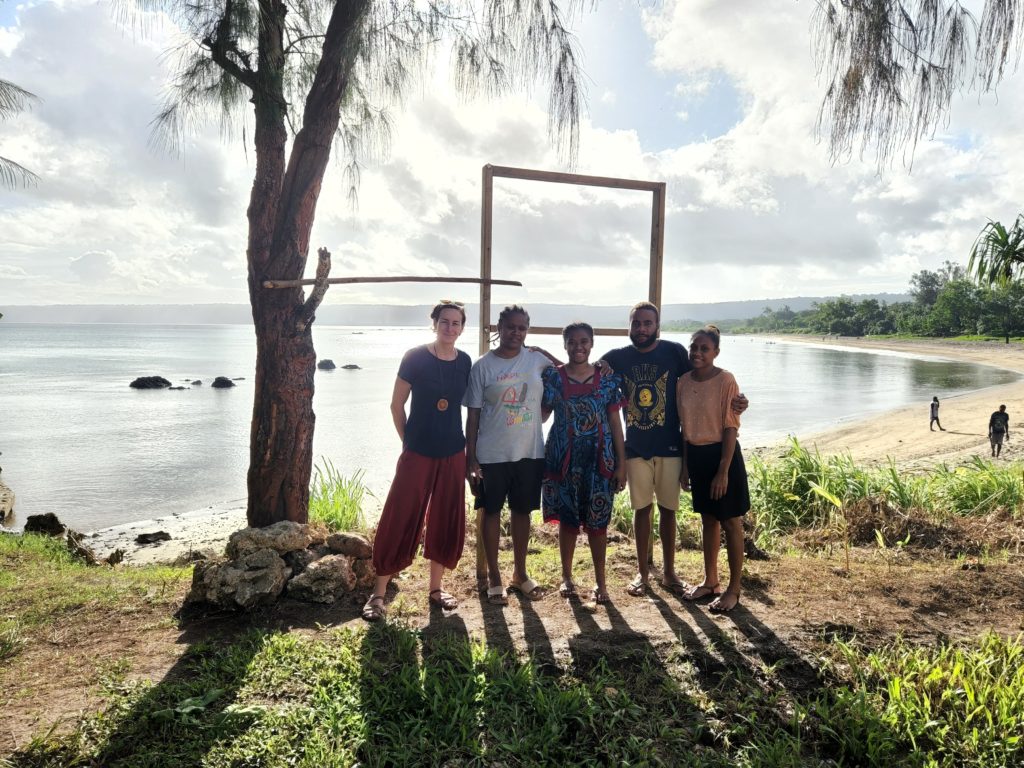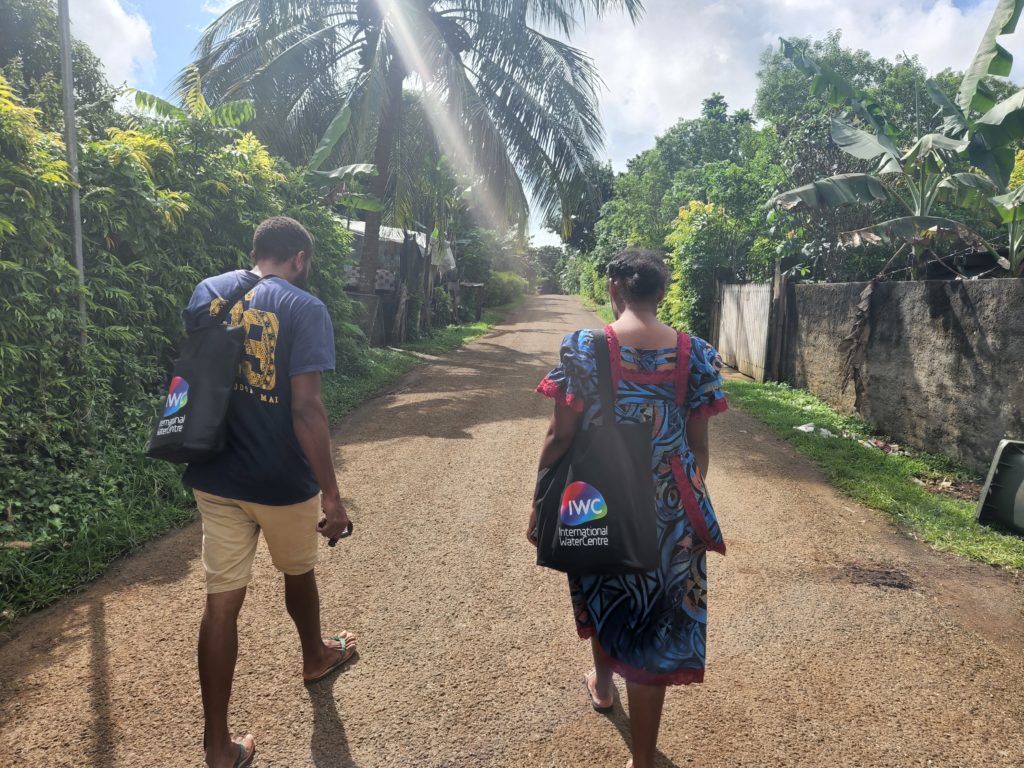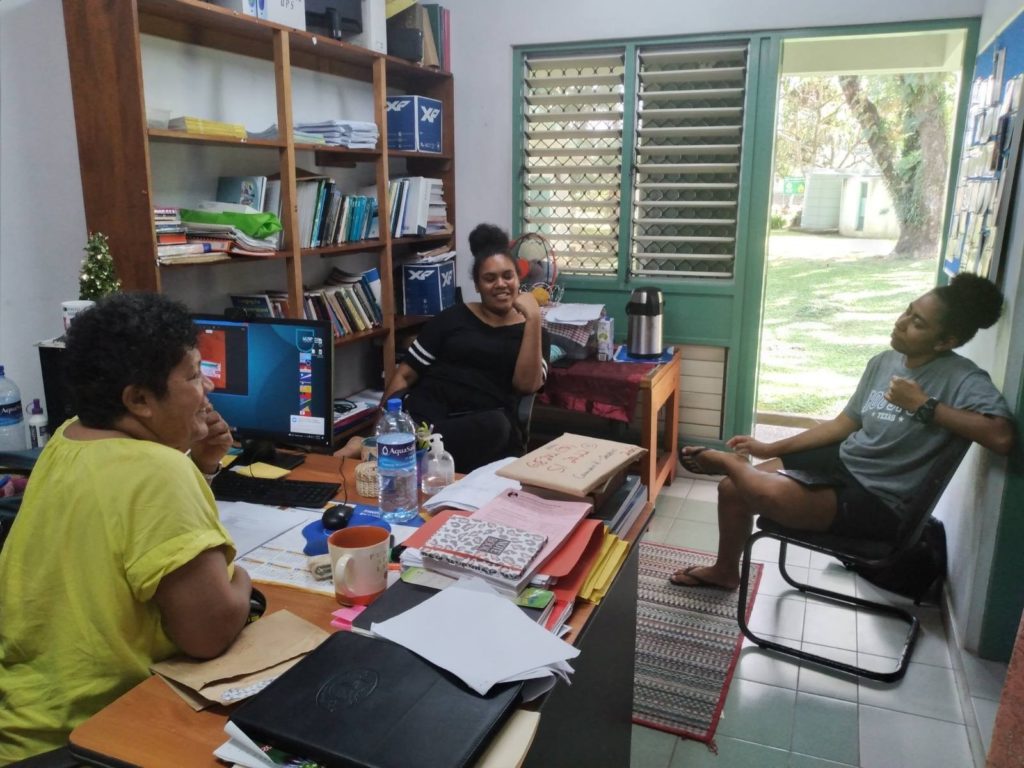
- Research project
- – Western Pacific
By R. Sanderson, G. Ratidara and E. Turaga
At the University of South Pacific, the research field teams have been busy training, pre-testing and conducting household surveys and qualitative interviews with residents in informal settlements in Port Vila and Suva. The purpose of the surveys is to collect WASH user preference information, and to begin to understand the climate exposure history of people living in selected settlements. In both cities, we are working in settlements with different environmental exposures: some are near to the rivers which flood, others are close to the sea where tsunamis and tidal inundation can occur. In both cities, at least one of the settlements is a densely packed area, where sharing of public toilets occurs.
Excitingly, the team from Brisbane were able to join the Port Vila team for some of the pre-testing after the borders opened on the 1st July. Early responses to the household survey questions were positive, with people telling the team about their experiences during Cyclones Pam and Harold, and what happens when flooding occurs in their area. Sharing of water meters and toilets between households is a common experience for people living in settlements, and this will have different sorts of impacts on the climate resilience of water, sanitation and hygiene services during and following climatic events.

An important point flagged during pre-testing of surveys in settlements within the urban municipal boundary in Port Vila was around people’s willingness to share and admit what sort of toilet they owned or used at home. Invariably, when first asked, residents indicate they have a “septic tank” type of toilet, however when this is explored by the enumerators including an inspection of the facilities, they were sometimes in fact a dry pit toilet. Later interviews with Port Vila Municipal Council officers revealed the ownership and use of dry pit toilets was not allowed under the municipal codes, and currently, residents can be fined for having one. Whether or not this contributes to survey respondents’ hesitance to reveal their practice will need to be explored as the data collection activities continue.

Over in Suva, Fiji, the researchers found most survey participants in their pretesting didn’t own toilets and used their neighbours. The Duavata settlement is quite congested and this was one of the reasons some participants couldn’t find space to build a proper toilet for themselves. Their water supply is from the Water Authority and most houses have taps outside in their yards rather than inside their homes. One of the participants shared how she gets up as early as 3 am to wash her clothes, do dishes, and get ready for the day since this is the only time the water pressure is good.
The pretesting also allowed for local research assistants to build their capacity. USP research assistant Grace Ratidara had this to say about their survey pre-testing activities:
“For Fiji, the pre-test was carried out at Duavata Settlement known locally as Jittu. Between the research team, a total of 13 data sets were collected. I’d describe the overall experience of the pilot survey a success. While I have surveyed and carried out research in informal settlements before, the use of tablets to collect and record data via SurveyCTO was a new experience.
The pre-test also provided a realistic experience in terms of what is to be expected when carrying out research in the field. This also allowed the researchers to practice skills specifically in terms of approaching a household, techniques of asking questions (without leading the respondents), seeking consent and taking photos within appropriate conditions. Respondents were inviting, receptive and very cooperative to answering questions which made the research process a bit easier. Since this experience, I am confident in going into the field to collect data whilst also keeping an open mind and positive attitude to the possibility that it might not be the same experience across the other settlements. Nevertheless, it’s going to be a learning experience with the opportunity to gain and sharpen skills – which I am looking forward to.”
